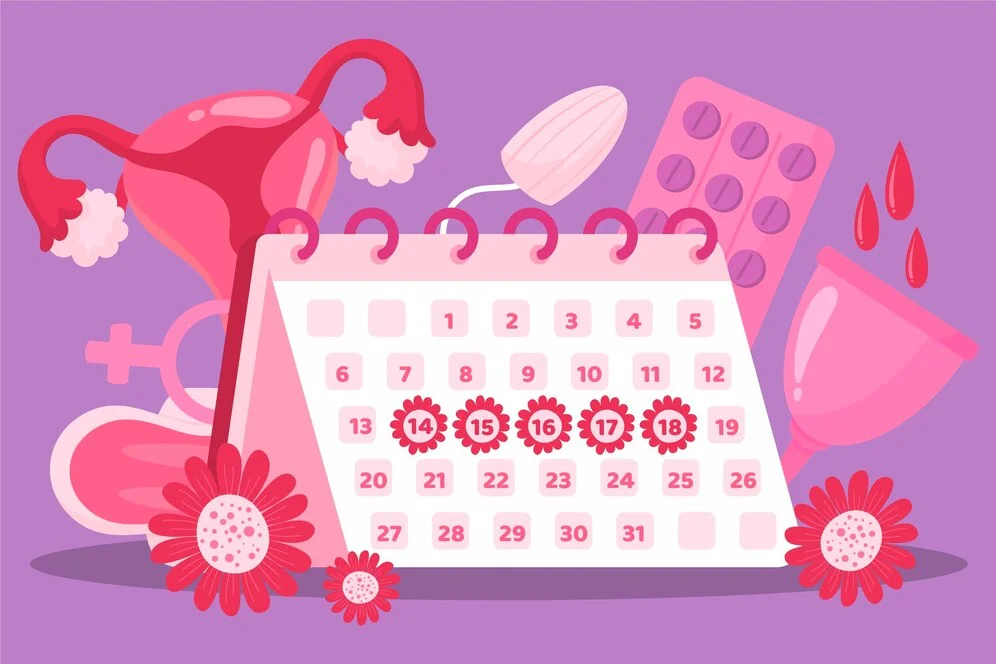-
Ganesh Talkies, Kolkata
Ganesh Talkies, Kolkata

Understanding the causes of irregular periods is essential for maintaining reproductive health. Learn the common reasons behind menstrual irregularities and when to consult a gynecologist for expert guidance.
A regular menstrual cycle is a key indicator of a woman’s reproductive and overall health. While variations in cycle length are normal, persistent irregularities can signal underlying health issues. The causes of irregular periods can range from hormonal imbalances to medical conditions that require attention.
In this guide, we’ll discuss the most common reasons for menstrual irregularities, lifestyle factors that affect your cycle, and when you should seek medical advice.

An irregular period refers to variations in the menstrual cycle that deviate from the typical 21 to 35-day range. Common irregularities include:
If these irregularities persist, it’s important to understand the underlying causes and seek medical advice when necessary.
Hormones play a crucial position in regulating the menstrual cycle. Any disruption in the balance of estrogen and progesterone can lead to irregular periods. Causes of hormonal imbalance include:
Chronic stress affects the hypothalamus, the part of the brain responsible for hormone regulation. Lifestyle factors that contribute to irregular periods include:
PCOS is one of the most common causes of abnormal durations. It takes place while the ovaries produce extra androgens (male hormones), mainly to:
PCOS requires proper medical management to regulate menstrual cycles and prevent complications.
Both an underactive thyroid (hypothyroidism) and an overactive thyroid (hyperthyroidism) can disrupt menstrual cycles. Symptoms of thyroid-related menstrual issues include:
A thyroid function test can help determine if this is the cause of menstrual irregularities.
Hormonal contraceptives such as birth control pills, intrauterine devices (IUDs), and contraceptive injections can cause menstrual irregularities, especially in the initial months. Other medications that affect menstruation include:
If you suspect your medication is affecting your cycle, consult a doctor before making changes.
Benign growths in the uterus, such as fibroids and polyps, can cause heavy bleeding, prolonged periods, and spotting between cycles. Other symptoms include:
Early diagnosis can help prevent complications and improve reproductive health.
Perimenopause, the transition phase before menopause, can lead to irregular menstrual cycles due to fluctuating hormone levels. Symptoms include:
If you are in your 40s and experiencing irregular periods along with these symptoms, it may be a sign of perimenopause.

While occasional irregularities are normal, it’s important to see a gynecologist if you experience:
Consulting a renowned gynecologist can help diagnose and manage the underlying cause effectively.
If you experience irregular periods, certain lifestyle changes and medical treatments can help regulate your cycle:

Yes, high levels of stress can interfere with hormone production, leading to delayed or missed periods.
If you have irregular cycles along with acne, excessive hair growth, and weight gain, consult a gynecologist for a PCOS evaluation.
Yes, birth control pills can help regulate periods, but they should be taken under medical supervision.
Missing one period occasionally is usually not a concern, but if you miss three or more consecutive cycles, seek medical advice.
Both hypothyroidism and hyperthyroidism can disrupt hormone levels, leading to irregular, heavy, or absent periods.
Understanding the causes of irregular periods is essential for maintaining reproductive health. While occasional irregularities may not be a concern, persistent disruptions should not be ignored. Identifying the underlying cause and seeking medical advice from a reputed gynecologist can help in timely diagnosis and treatment.
If you experience frequent menstrual irregularities, schedule a consultation with a qualified gynecologist to receive expert guidance and a personalized treatment plan. Taking proactive steps today can help ensure long-term reproductive health and well-being.